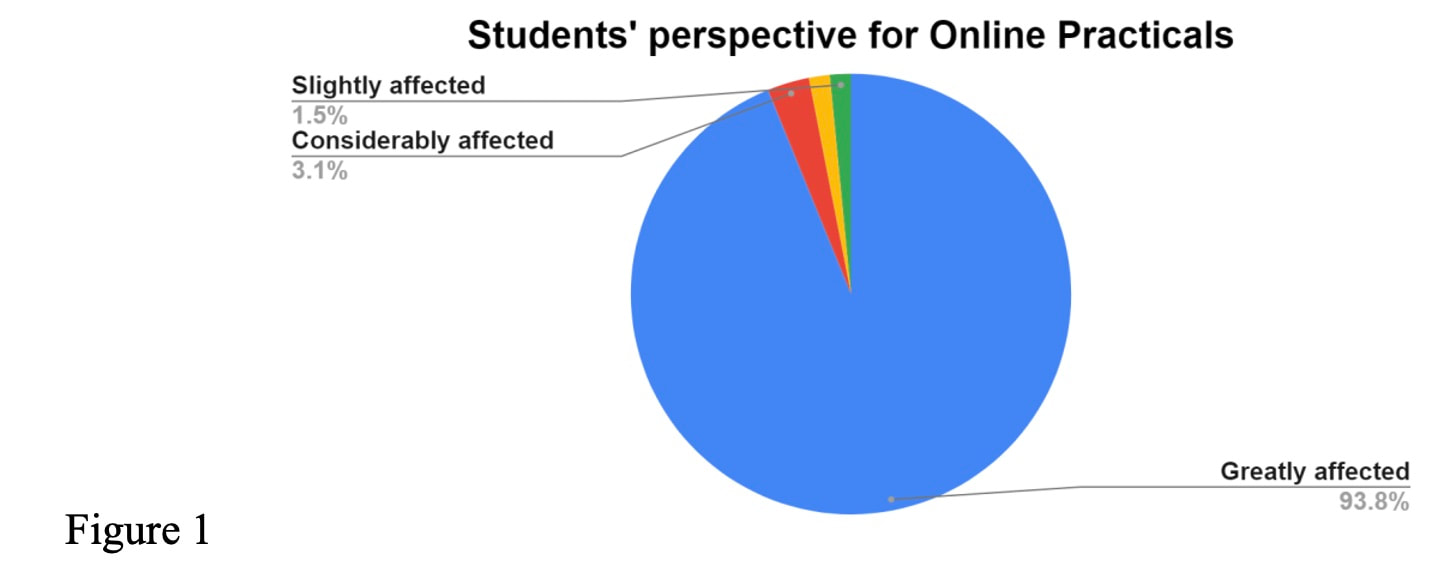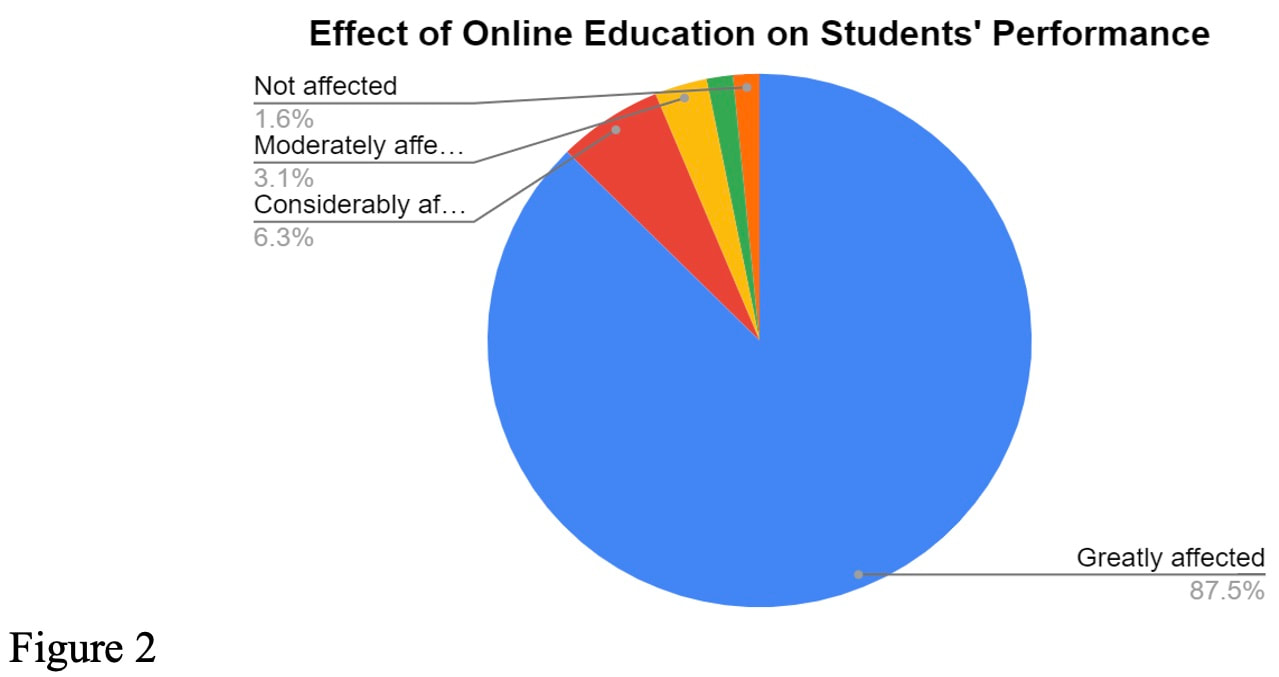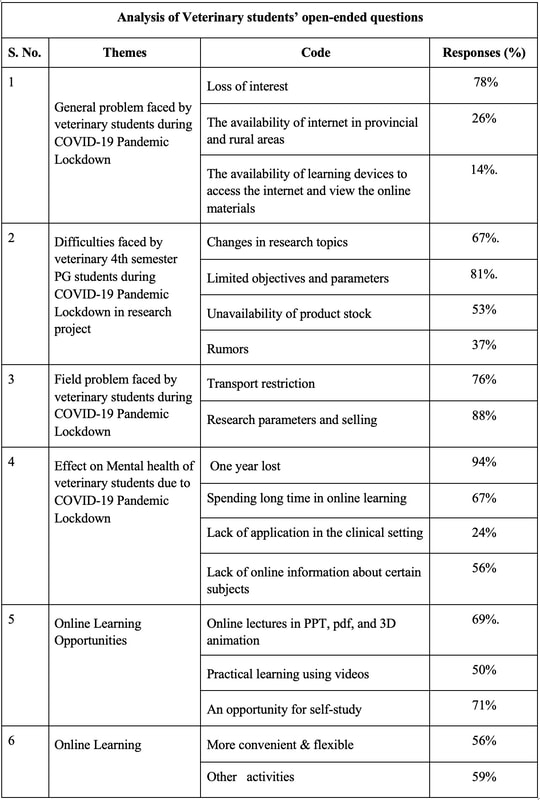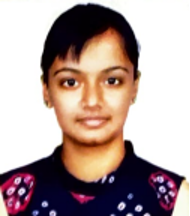- Home
- About WVN
-
WVN Issues
- Vol. 1 No. 1 (Oct. 2017) >
- Vol. 2 No. 1 (Feb. 2018) >
- Vol. 2 No. 2 (Jun. 2018) >
- Vol. 2 No. 3 (Oct. 2018) >
- Vol. 3 No. 1 (Feb. 2019) >
- Vol. 3 No. 2 (Jun. 2019) >
- Vol. 3 No. 3 (Oct. 2019) >
- Vol. 4 No. 1 (Feb. 2020) >
- Vol. 4 No. 2 (Jun. 2020) >
- Vol. 4 No. 3 (Oct. 2020) >
- Vol. 5 No. 1 (Feb. 2021) >
- Vol. 5 No. 2 (Jun. 2021) >
- Vol. 5 No. 3 (Oct. 2021) >
- Vol. 6 No. 1 (Feb. 2022) >
- Vol. 6 No. 2 (Jun. 2022) >
- Vol. 6 No. 3 (Oct. 2022) >
- Vol. 7 No. 1 (Feb. 2023) >
- Vol. 7 No. 2 (Jun. 2023) >
- Vol. 7 No. 3 (Oct. 2023) >
- Vol. 8 No. 1 (Feb. 2024) >
-
Events
- CIES 2023, Feb. 14-22, Washington D.C., USA
- ICES 4th National Conference, Tel Aviv University, Israel, 20 June 2021
- 2022 Virtual Conference of CESHK, 18-19 March 2022
- ISCEST Nigeria 7th Annual International Conference, 30 Nov.-3 Dec. 2020
- 3rd WCCES Symposium (Virtually through Zoom) 25-27 Nov. 2020
- CESA 12th Biennial Conference, Kathmandu, Nepal, 26-28 Sept. 2020
- CESI 10th International Conference, New Delhi, India, 9-11 Dec. 2019
- SOMEC Forum, Mexico City, 13 Nov. 2018
- WCCES Symposium, Geneva, 14-15 Jan. 2019
- 54th EC Meeting, Geneva, Switzerland, 14 Jan. 2019
- XVII World Congress of Comparative Education Societies, Cancún, Mexico, 20-24 May 2019
- ISCEST Nigeria 5th Annual Conference, 3-6 Dec. 2018
- CESI 9th International Conference, Vadodara, India, 14-16 Dec. 2018
- ICES 3rd National Conference, Ben-Gurion University, Israel, 17 Jan. 2019
- WCCES Retreat & EC Meeting, Johannesburg, 20-21 June 2018
- WCCES Symposium, Johannesburg, 21-22 June 2018
- 5th IOCES International Conference, 21-22 June 2018
- International Research Symposium, Sonepat, India, 11-12 Dec. 2017
- WCCES Info Session & Launch of Online Course on Practicing Nonviolence at CIES, 29 March 2018
- WCCES Leadership Meeting at CIES, 28 March 2018
- 52nd EC Meeting of WCCES, France, 10-11 Oct. 2017
- UIA Round Table Asia Pacific, Chiang Mai, Thailand, 21-22 Sept. 2017
- Online Courses
|
Abstract Covid-19 pandemic has interrupted learning and presented serious challenges for veterinary education like other streams of education. The present study aimed to explore the impact of COVID-19 Lockdown on the academic performance of veterinary postgraduate students. A descriptive survey was carried out using an online Google form questionnaire. A total of 64 participants from 5 different colleges from Maharashtra, India have taken part in the survey. The results indicated that COVID-19 Pandemic Lockdown affected the teaching quality; students’ learning and ultimately it affected academic performance. Study also found that: Online mode helps to continue education with an opportunity for self-study; delivery of practical lessons was a major challenge; it is difficult to study PG 4th semester online as most of the syllabus is based on practicals; due to the need to change their research topic, limit their research objectives due to restricted travel conditions. In addition, the study revealed various challenges faced by Veterinary students as professors' noviceness towards technology, socio-economic status, mental stress, internet connectivity & speed; low bandwidth etc. along with this educational loss of the entire academic year was incurred. In conclusion, the paper suggests some recommendations for the way forward. Keywords: Veterinary students, Covid-19, online teaching, academic performance Introduction In the current global crisis of Covid-19 pandemic, we Post Graduate Veterinary students and our faced formidable challenges, which we cannot explain in words. We couldn’t understood whether to continue our 4th semester or not, the need to help live stocks and pets, dealing with rapid technological changes and research variables that affect our mental health. Universities and colleges worldwide have been closed, and online education has suddenly become an academic norm. The global pandemic, COVID-19, forced a drastic change in the collegiate experience for students and instructors (Schee & Birrittella, 2021). The only alternative; online education was accepted all over the world which has many challenges. Veterinary education is also confronted with the same. Although online education provides an opportunity for self-study, the main challenge faced in veterinary education is how to give practical lessons (Mhady, 2020). As a part of Veterinary education, students have to visit various labs and locations which were not feasible during Lockdown due to restrictions on travelling which hampered their practical knowledge. The teachers lacked the skills of conducting online education. Practicing veterinarians faced problems with reaching their patients due to travel restrictions, unavailability of medicines and feedstock, also lack of transports caused pharmacy to get empty sooner. As there are no studies investigating the effect of COVID-19 on difficulties faced by veterinary PG students, the current study was conducted to analyze the impact of COVID-19 pandemic on the academic performance of veterinary students and the difficulties faced by them. According to Rajab et al. (2020) pandemics have historically created challenges, identifying these challenges is the first step in converting them into opportunities. Literature Review Covid-19 pandemic made us jump from offline to online without prior readiness. External events can cause a drastic change in the environment that necessitates quick transitions (Schee & Birrittella, 2021). To respond to the current challenges of pandemic many educational institutions adapted digital platforms to replace traditional ways of teaching. Education sector, which was reluctant to use technology, continued online teaching. According to Muthuprasad, et al. (2021) online learning is a perfect substitute for the traditional classroom learning if they are designed suitably. But the main challenge with online learning is practical aspects which cannot be effectively delivered (Christian, 2021; Dobbs-Oates, 2021) as most of the subjects are practical. Some other challenges are students do not have access to laptops, or high-speed internet at home (Rajab et al., 2020). Challenges as identified by Pokhrel & Chhetri, (2021) are accessibility, and affordability for all learners of varied economic backgrounds. Thus, pandemic also interrupted the internship programme where the student gets the actual field based experiences. Dobbs-Oates et al. (2021) stated the importance of field experience as it is a time to apply practical skills and gain professional experience related to one’s future career. The COVID-19 pandemic also raised questions about educators’ capability to use technology effectively (Christian et al. 2021). In addition to this VET teachers are not adapted for online content delivery; they grapple with a wide range of issues to ensure that students can be trained and assessed appropriately. Thus, Covid-19 pandemic have caused unprecedented and unexpected challenges for veterinary schools Routh et al. (2021). According to Meloa, et al. (2020) the pandemic has negatively affected teaching quality and student learning at most universities and colleges. The literature has highlighted different studies conducted during pandemic; very few studies have attempted to understand the impact of pandemic on the academic performance of veterinary students. To the best of our knowledge no study attempted to understand difficulties and impact of pandemic on the performance of veterinary students in Indian context. Thus to fill this gap, drawing insights from the literature in conceptualizing the problem, exclusively focusing attention on difficulties and impact of pandemic on the academic performance of Indian students in veterinary education. The current study synthesizes the descriptive research regarding the impact of COVID-19 pandemic on the academic performance of post graduate veterinary students. The academic performance of veterinary Post Graduate Veterinary students means the intellectual level, personality, motivation, skills, interests, study habits, self-esteem or the teacher-student relationship in of veterinary education at post graduate level. This academic success is important because as a veterinarian we have to tackle with animals and it needs higher levels of skills, positive self-esteem and self-confidence. Following two research questions are addressed based on the responses collected from descriptive survey: RQ. 1 How has the Covid-19 pandemic affected veterinary education? RQ. 2 What is the effect of COVID-19 lockdown on the academic performance of veterinary Post Graduate Veterinary students in India? Methodology A descriptive survey method was used to analyze the difficulties faced by the veterinary students during COVID-19 Lockdown and its impact on the academic performance. As described by Mathiyazhagan & Nandan (2010) survey research method is a descriptive research method used for the collection of data from the representative sample of the target population. Questionnaire Design A Google form was designed to collect the data from Veterinary students. The form clearly ensured the purpose of data collection by keeping the participants anonymity. It evaluated the effect of COVID-19 pandemic on the performance of Veterinary students in online learning during the Lockdown. The questionnaire consisted of 8 questions (2 closed-ended and 6 open-ended). For designing closed ended Likert scale was used, the first question was based on the evaluation of the effect of Lockdown on academic performance and the second one for the evaluation of online practical learning. 6 open ended questions were designed to evaluate General problem, Difficulties, Field problems, Effect on Mental health, and Use of Online Learning and Online Learning Opportunities. Sample and Data collection Purposeful sampling is widely used in qualitative research for the identification and selection of information-rich cases related to the phenomenon of interest (Palinkas, et al., 2015). For this study, 64 veterinary students from 5 different colleges of Maharashtra, India were taken as a purposive sample. Data collection was done using a spreadsheet linked to the online Google form questionnaire. Data analysis Descriptive statistics were presented as counts and percentages to summarize the collected data as suggested by (Mahdy, 2020).To measure the effect of COVID-19 Lockdown on the academic performance and perspective on online practicals of veterinary medical students, 5-Point Likert Scale was used. Answers were converted into numeric values as follows (greatly affected = 5 points; considerably affected = 4 points; moderately affected = 3 points; slightly affected = 2 points; Not affected = 1 point). To analyse the data collected from the survey, manual thematic analysis of the data was done. Question wise documents were prepared and a query was run to explore the word frequency. Open coding from the acquired data was done at an initial stage and themes and sub-themes were formed. The analysis is based on Bhamani (2020) suggestions which affirm that the codes, themes and sub-themes verified by all researchers confirm coherence in interpretation. Results A total of 64 participants responded to the survey. Findings from the analysis and data gathered from this study are presented below. 1. General problem faced by veterinary students during COVID-19 Pandemic LockdownDue to various challenges of online learning students’ lost their interest in learning (78%). 26% of students faced the internet issues as they shifted to their hometown in rural areas, 14% of students faced financial crises, and were unable to buy electronic gadgets required for e-learning . 2. Difficulties faced by veterinary students during COVID-19 Pandemic Lockdown In Research project PG students of semester 4th have encountered many challenges. The research study which is of six months duration as per their coursework, was required to wind up within 3 months, they had to limit their research objectives (81%) and have to change their topic of research (67%) as per the prevailing conditions. The researcher had to face challenges of unavailability of product stock (53%) which was needed for their study due to transport supply restriction. In addition to this, rumors such as bird flu (37%) also contributed to delay in start of project causing mental stress. 3. Field problem faced by veterinary students during COVID-19 Pandemic Lockdown Due to travelling restrictions students were unable to visit the field, which hampered first-hand experience, the clinical practice was disrupted and the medicine stock soon emptied due to supply problem. 4. Effect on Mental health of veterinary students due to COVID-19 Pandemic Lockdown Veterinary students’ faced the loss of almost one whole academic year (94 %). Students lack of online information about certain subjects (56%). Students have to spend more time (67%) finding the appropriate content related to the topic. Restriction on knowledge in the clinical setting (24%). PG 4th semester Veterinary students had to cut short their research objectives and change their research topics. Such conditions also had an adverse effect on their mental health. 5. Online Learning OpportunitiesThe opportunities which students mentioned, they can access the content of their online lectures using PPT, pdf, and 3D animation without restrictions of time and place (69%). 50% of students reported that they can learn practicals by watching videos, but actual field experiences are irreplaceable. 71% of students found online education gave them an opportunity for self-study. 6. Online Learning 56% of students found online learning more convenient & flexible as it gives the opportunity to engage in an area of one's interest (59%). 7. Evaluation of Students’ perspective on online practicals during COVID-19 pandemic lockdown The mean evaluation score was 4.96 points. The data showed that maximum students (93.8%) were greatly affected whereas 3.1% considerably and moderately affected and 1.5% of students were slightly affected. (Figure 1). 8. The students’ perception about Academic Performance due to COVID-19 Pandemic LockdownThe mean evaluation score was 4.77 points. The data showed that maximum participants (87.5%) were greatly affected whereas 6.3% were considerably affected, 3.1% moderately and slightly affected, whereas, only 1.6% of participants reported that Lockdown had no effect on their academic performance (Figure 2). Discussion
COVID-19 situation presented serious challenges for veterinary students. Traditional teaching consisting of hands-on practical had to stop abruptly, which was forcibly replaced with online teaching. The study was carried out to analyze the impact of COVID-19 Lockdown on the academic performance of veterinary postgraduate students. The various challenges of online education have intensified the burden of veterinary education during Covid-19. Data from 64 participants from 5 different colleges of Maharashtra, India was collected using a Google form. The open-ended questionnaire designed was on- general problems, research project problems, field problems, opportunity of online learning, mental health etc. As veterinary education is an activity oriented field based course it requires maximum hands-on experiences. While Pandemic students were shifted to e-learning, which was only beneficial for theoretical subjects, lack of hands-on practice caused huge loss in students' understanding (93%). They were unable to apply their knowledge in clinical settings (24%). The current data shows that COVID-19 Pandemic Lockdown caused a loss of almost one academic year (94%) and also affected the academic performance of most of the students (87.5%); this finding is reinforced by the studies of Meloa, et al. (2020). Lack of online information about certain subjects (56%), spending more time (67%) to find the appropriate content. Especially PG 4th semester Veterinary students had to compromise with field based experiences as most of their syllabus is based on practicals. They had to cut short their research objectives and change their research topic (67%) because of travel restrictions and lack of all facilities at one place. Students lose their interest due to various challenges of online learning (78%). During e-learning exams didn’t make any sense causing students to take the study casually this all affected students’ mental health. In addition students with higher socio-economic status were able to adapt faster to e-learning because of the availability of all electronic gadgets they owned but at the same time many students faced financial crises, they found it difficult to pay the fees of college moreover they were unable to buy virtual learning tools like laptops (14%). The students opined that flexibility and convenience of online classes makes it an attractive option, whereas broadband connectivity issues in rural areas is a challenge (26%). Along with this teachers were incompetent for using technology because of practical correlation of the subjects. As such they have to learn / upgrade their knowledge about e-learning. According to Rana & Kumar (2017) a teacher should be the initiator and has to proactively take responsibility for modification/addition to the contents of lecture dynamically in sync with the requirements of time. Whereas Muthuprasad et al., (2021) claimed that in future technical proficiency of teachers and learners related to usage of computer and internet will be a major factor determining the effectiveness of online classes. Despite these challenges, the COVID-19 pandemic has had a positive impact on veterinary education. Some of the opportunities as reported were students can access the content of PPT, pdf, and 3D animations without restrictions of time and place (69%). As there was no alternative, they learned practicals by watching videos (50%) but they found actual field experiences are irreplaceable. 71% of students found online education gave them an opportunity for self-study. But at the same time many found it as a challenge as they had never taken the responsibility for their own learning. 56% students found online learning as more convenient & flexible which gives them the opportunity to indulge themselves in various activities of their interest (59%). Covid-19 had a huge impact directly on veterinarians and indirectly on animals too. Most students are of the opinion that it is difficult to fulfill the veterinary competencies only with an online education system (Mahdy, 2020). Conclusion This study highlights the difficulties faced by veterinary students due to online education and its challenges as a result of the sudden switch from traditional to online learning in veterinary education. The findings of this study indicated that veterinary students are confronted with many challenges due to COVID-19 Pandemic Lockdown. It affected the academic performance of most participants with varying degrees. Students did not attempt the exam seriously; Internet connectivity became the barrier (Muthuprasad et al., 2021). Students expressed concerns about hands-on practices which restricted their understanding. Covid-19 created the opportunity of self-study which is an alternative way to spoon-feeding. It paved the way for shifting teacher centered instruction towards a well scaffold, student-centered learning. Finally, and importantly, the innovation and creativity that comes hand in hand with sudden and challenging obstacles will undoubtedly gift us with novel and exciting practices that we can continue to use once the dust has settled Routh et al. (2021). According to University World News (2021) and Brazier, R. (2021) the future for many institutions is likely to present a truly blended, non-binary – neither solely online nor on-campus – offering and now is therefore the perfect opportunity to develop a best-practice framework for the future. Recommendations Through above discussion and conclusion the recommendation needed for this situation is to provide Teachers with training for using online education platforms (Dhawan, 2020). Veterinary practice can never be shifted fully to online mode as practical is a core medium therefore during Covid time with safety precaution and following measures a way to do practice has to be derived eg. small student group batch wise practical. Online education should be made interactive using various tools and virtual laboratories which can be an alternative field based experience for a blended approach. References 1. Brazier, R. (2021) https://www.universityworldnews.com/post.php?story=20210302123812565 2. Christian, D.; McCarty, D.; & Brown, C. (2021). Experiential Education during the COVID-19 Pandemic: A Reflective Process, Journal of Constructivist Psychology, 34:3, 264-277, DOI: 10.1080/10720537.2020.1813666 3. Dobbs-Oates, J.; Elias, C.; Purcell, M. & Watkins, N.(2021). Experiential Learning from Home: The impact of COVID-19 on field based practices. Susan Bulkeley Butler Center for Leadership Excellence and ADVANCE Working Paper Series 3(3) Special Issue: 56-66. https://www.purdue.edu/butler/documents/8-WPS-Special-Issue-2021_Experiential-Learning-from-Home.pdf 4. Mahdy, M. (2020). The Impact of COVID-19 Pandemic on the Academic Performance of Veterinary Medical Students Front. Vet. Sci., 06 October 2020 https://doi.org/10.3389/fvets.2020.594261 5. Mathiyazhagan, T. &Nandan, D. (2010) Survey research method. https://www.krishanpandey.com/rpapersd/Surver-Content.pdf 6. Meloa, G.; Sanhuezab, D.; Moralesc , S. &Lévanod, L. (2020). What does the pandemic mean for experiential learning? Lessons from Latin America https://www.aaea.org/UserFiles/file/AETR_2020_040RRProofFinalUPDATED2.docx.pdf 7. Muthuprasad, T.; Aiswarya, S.; Aditya, K.; .Jha, G. (2021). Students’ perception and preference for online education in India during COVID -19 pandemic. Social Sciences & Humanities Open Volume 3, Issue 1, 2021, 100101 https://doi.org/10.1016/j.ssaho.2020.100101 8. Palinkas, L. A., Horwitz, S. M., Green, C. A., Wisdom, J. P., Duan, N., &Hoagwood, K. (2015). Purposeful Sampling for Qualitative Data Collection and Analysis in Mixed Method Implementation Research. Administration and policy in mental health, 42(5), 533–544. https://doi.org/10.1007/s10488-013-0528-y 9. Pokhrel, S. & Chhetri, R. (2021). A Literature Review on Impact of COVID-19 Pandemic on Teaching and Learning https://doi.org/10.1177/2347631120983481 10. Rajab, M. H., Gazal, A. M., &Alkattan, K. (2020). Challenges to Online Medical Education During the COVID-19 Pandemic. Cureus, 12(7), e8966. DOI:10.7759/cureus.8966 11. Rana, N. & Kumar, A. (2017) Veterinary education in India: Shaping the future agenda with focus on veterinary public health education The Indian journal of animal sciences 87(9):1052-1061 https://www.researchgate.net/publication/320135791_Veterinary_education_in_India_Shaping_the_future_agenda_with_focus_on_veterinary_public_health_education 12. Routh, J.; Paramasivam, .; Cockcroft, P.; Nadarajah, V. and Jeevaratnam, K. (2021). Veterinary Education during Covid-19 and Beyond—Challenges and Mitigating Approaches. Animals 2021, 11, 1818. https://doi.org/10.3390/ani11061818 13. Schee, B. &Birrittella, T. (2021). Hybrid And Online Peer Group Grading: Adding Assessment Efficiency While Maintaining Perceived Fairness. Marketing Education. Review 2021, Vol. 31, No. 4, 275–283 Https://Doi.Org/10.1080/10528008.2021.1887746 14. Dhawan, S. (2020). Online Learning: A Panacea in the Time of COVID-19 Crisis. Journal of Educational Technology Systems, 49(1), 5-22. https://doi.org/10.1177/0047239520934018
1 Comment
1/10/2024 06:22:53 am
The COVID-19 pandemic has significantly transformed the landscape of education in India, introducing challenges like remote learning and digital disparities. Despite these obstacles, the top 10 schools in Sahakar Nagar have displayed resilience, adapting innovative strategies to ensure uninterrupted education for their students. This adaptability underscores the crucial role of quality education institutions in navigating the impact of the pandemic and maintaining educational standards during these unprecedented times.
Reply
Leave a Reply. |
AuthorDr. Nikita N. Deshmukh ArchivesCategories Narnala Fort, Akola Image Attribution: Sohan wankhade, CC BY-SA 4.0 <https://creativecommons.org/licenses/by-sa/4.0>, via Wikimedia Commons |
- Home
- About WVN
-
WVN Issues
- Vol. 1 No. 1 (Oct. 2017) >
- Vol. 2 No. 1 (Feb. 2018) >
- Vol. 2 No. 2 (Jun. 2018) >
- Vol. 2 No. 3 (Oct. 2018) >
- Vol. 3 No. 1 (Feb. 2019) >
- Vol. 3 No. 2 (Jun. 2019) >
- Vol. 3 No. 3 (Oct. 2019) >
- Vol. 4 No. 1 (Feb. 2020) >
- Vol. 4 No. 2 (Jun. 2020) >
- Vol. 4 No. 3 (Oct. 2020) >
- Vol. 5 No. 1 (Feb. 2021) >
- Vol. 5 No. 2 (Jun. 2021) >
- Vol. 5 No. 3 (Oct. 2021) >
- Vol. 6 No. 1 (Feb. 2022) >
- Vol. 6 No. 2 (Jun. 2022) >
- Vol. 6 No. 3 (Oct. 2022) >
- Vol. 7 No. 1 (Feb. 2023) >
- Vol. 7 No. 2 (Jun. 2023) >
- Vol. 7 No. 3 (Oct. 2023) >
- Vol. 8 No. 1 (Feb. 2024) >
-
Events
- CIES 2023, Feb. 14-22, Washington D.C., USA
- ICES 4th National Conference, Tel Aviv University, Israel, 20 June 2021
- 2022 Virtual Conference of CESHK, 18-19 March 2022
- ISCEST Nigeria 7th Annual International Conference, 30 Nov.-3 Dec. 2020
- 3rd WCCES Symposium (Virtually through Zoom) 25-27 Nov. 2020
- CESA 12th Biennial Conference, Kathmandu, Nepal, 26-28 Sept. 2020
- CESI 10th International Conference, New Delhi, India, 9-11 Dec. 2019
- SOMEC Forum, Mexico City, 13 Nov. 2018
- WCCES Symposium, Geneva, 14-15 Jan. 2019
- 54th EC Meeting, Geneva, Switzerland, 14 Jan. 2019
- XVII World Congress of Comparative Education Societies, Cancún, Mexico, 20-24 May 2019
- ISCEST Nigeria 5th Annual Conference, 3-6 Dec. 2018
- CESI 9th International Conference, Vadodara, India, 14-16 Dec. 2018
- ICES 3rd National Conference, Ben-Gurion University, Israel, 17 Jan. 2019
- WCCES Retreat & EC Meeting, Johannesburg, 20-21 June 2018
- WCCES Symposium, Johannesburg, 21-22 June 2018
- 5th IOCES International Conference, 21-22 June 2018
- International Research Symposium, Sonepat, India, 11-12 Dec. 2017
- WCCES Info Session & Launch of Online Course on Practicing Nonviolence at CIES, 29 March 2018
- WCCES Leadership Meeting at CIES, 28 March 2018
- 52nd EC Meeting of WCCES, France, 10-11 Oct. 2017
- UIA Round Table Asia Pacific, Chiang Mai, Thailand, 21-22 Sept. 2017
- Online Courses





 RSS Feed
RSS Feed
